With new technologies revolutionizing data collection, wildlife researchers are becoming increasingly able to collect data at much higher volumes than ever before. Now we are facing the challenges of putting this information to use, bringing the science of big data into the conservation arena. With the help of machine learning tools, this area holds immense potential for conservation practices. The applications range from online trafficking alerts to species-specific early warning systems to efficient movement and biodiversity monitoring and beyond.
However, the process of building effective machine learning tools depends upon large amounts of standardized training data, and conservationists currently lack an established system for standardization. How to best develop such a system and incentivize data sharing are questions at the forefront of this work. There are currently multiple AI-based conservation initiatives, including Wildlife Insights and WildBook, that are pioneering applications on this front.
This group is the perfect place to ask all your AI-related questions, no matter your skill level or previous familiarity! You'll find resources, meet other members with similar questions and experts who can answer them, and engage in exciting collaborative opportunities together.
Just getting started with AI in conservation? Check out our introduction tutorial, How Do I Train My First Machine Learning Model? with Daniel Situnayake, and our Virtual Meetup on Big Data. If you're coming from the more technical side of AI/ML, Sara Beery runs an AI for Conservation slack channel that might be of interest. Message her for an invite.
Header Image: Dr Claire Burke / @CBurkeSci

Explore the Basics: AI
Understanding the possibilities for incorporating new technology into your work can feel overwhelming. With so many tools available, so many resources to keep up with, and so many innovative projects happening around the world and in our community, it's easy to lose sight of how and why these new technologies matter, and how they can be practically applied to your projects.
Machine learning has huge potential in conservation tech, and its applications are growing every day! But the tradeoff of that potential is a big learning curve - or so it seems to those starting out with this powerful tool!
To help you explore the potential of AI (and prepare for some of our upcoming AI-themed events!), we've compiled simple, key resources, conversations, and videos to highlight the possibilities:
Three Resources for Beginners:
- Everything I know about Machine Learning and Camera Traps, Dan Morris | Resource library, camera traps, machine learning
- Using Computer Vision to Protect Endangered Species, Kasim Rafiq | Machine learning, data analysis, big cats
- Resource: WildID | WildID
Three Forum Threads for Beginners:
- I made an open-source tool to help you sort camera trap images | Petar Gyurov, Camera Traps
- Batch / Automated Cloud Processing | Chris Nicolas, Acoustic Monitoring
- Looking for help with camera trapping for Jaguars: Software for species ID and database building | Carmina Gutierrez, AI for Conservation
Three Tutorials for Beginners:
- How do I get started using machine learning for my camera traps? | Sara Beery, Tech Tutors
- How do I train my first machine learning model? | Daniel Situnayake, Tech Tutors
- Big Data in Conservation | Dave Thau, Dan Morris, Sarah Davidson, Virtual Meetups
Want to know more about AI, or have your specific machine learning questions answered by experts in the WILDLABS community? Make sure you join the conversation in our AI for Conservation group!
- @eliminatha
- | she
Passionate wildlife researcher dedicated to uncovering the secrets of the natural world via the lens of camera traps. With a sharp eye for detail and a strong commitment to wildlife conservation.
- 0 Resources
- 0 Discussions
- 4 Groups
- @Amitkaushik
- | he/him/his
University of Georgia (UGA)
Environmental anthropologist; An interdisciplinary Ph.D. student, bridging conservation science, policies, and social justice
- 0 Resources
- 1 Discussions
- 2 Groups
Data has been my passion and i enjoy working with data while bringing value to the business. Data engineer with 7+ years of experience Eager to support with expert analytical skills to advance the companys business operations and strategic initiative.
- 0 Resources
- 0 Discussions
- 9 Groups
- @kbubnicki
- | he/his
Ecologist, data scientist, and programmer with over 13 years of professional experience. Open source and Linux enthusiast. Researcher at the Mammal Research Institute, Polish Academy of Sciences, and CEO of the Open Science Conservation Fund.
- 0 Resources
- 0 Discussions
- 5 Groups
- @JoãoVieira
- | he/him
Conservation biologist. Iberian wolf monitoring field technician. Master`s on bear`s movement ecology.
- 0 Resources
- 0 Discussions
- 2 Groups
- @shannondubay
- | she/her
Panthera
Director of Conservation Technology at Panthera
- 0 Resources
- 0 Discussions
- 5 Groups
- @waltertortuga
- | She/Her/Hers
Universidad San Francisco de Quito
I'm a professor and researcher focusing on carnivore conservation in tropical landscapes.
- 0 Resources
- 0 Discussions
- 5 Groups
- @silvanasitayiari
- | she/her
- 0 Resources
- 0 Discussions
- 7 Groups
- @alekseisaunders
- | He/Him/His
Wildlife conservationist, ichthyologist, now pursuing a career in Software Engineering and Web Development
- 0 Resources
- 0 Discussions
- 2 Groups
Adventure Scientists is a 501(c)3 nonprofit organization based in Bozeman, MT that equips scientists and researchers with high-quality data collected from the outdoors that are crucial to addressing environmental challenges around the world.
- 0 Resources
- 0 Discussions
- 16 Groups
- @DanielHugelmann
- | He / Him
Hi, I'm the co-founder of OceanLabs Seychelles. We design and build environmental and marine remote sensing devices for conservation NGOs. As an engineer and avid diver, with a love for the environment, connecting conservation and technology was the natural thing to do!
- 0 Resources
- 1 Discussions
- 12 Groups
Background in Computer Science, Developing Acoustic AI Tech at Synature
- 0 Resources
- 1 Discussions
- 4 Groups
WILDLABS and Fauna & Flora International are seeking an early career Vietnamese conservationist for 12-month paid internship position to grow and support the Southeast Asia regional community in our global...
11 January 2023
This position focuses on the ecology aspect of the project, while a second PhD in Ilmenau will be dealing with programming/AI development. Because of the high temporal resolution of our data, we can investigate how land...
9 January 2023
Careers
We are looking for someone who enjoys the craft of making to come and help run our London based lab.
5 January 2023
Seeking Software Engineer for Marine Science Lab a UC Santa Barbara
19 December 2022
Using satellite imagery to detect and classify the severity of cyanobacteria blooms in small, inland water bodies.
15 December 2022
a technology-led solution to understanding the honeybees of the wasp world
8 December 2022
The University of Alaska Fairbanks is seeking a research Post Doctoral Fellow to work in collaboration with the Arctic National Wildlife Refuge, U.S. Fish and Wildlife Service. The position will focus on using Machine...
7 December 2022
Conservation partnership launches new award to advance biodiversity conservation from space
5 December 2022
Interested in a PhD exploring the potential of AI? Please consider applying to Realize Lab at the University of Michigan CSE.
23 November 2022
Article
This essay is the third in a series on the promise and challenges of using AI and machine learning to create a planetary environmental management system.
14 November 2022
We have a fully-funded PhD opening in the DARSA group. The project aims at developing novel algorithms and annotation tools for hierarchical classification, with profound and immediate applications to both agriculture...
8 November 2022
Careers
Working with a team of conservation practioners, scientists, and technologists, the Spatial Data Analyst uses leading-edge earth observation data in new and effective ways to inform conservation practice locally,...
8 November 2022
June 2024
July 2024
August 2024
event
September 2024
event
event
October 2024
May 2023
event
event
April 2023
54 Products
Recently updated products
14 Products
Recently updated products
| Description | Activity | Replies | Groups | Updated |
|---|---|---|---|---|
| Hi @DaveGaynor regarding funding, have you reached out to any lodges? I know that snaring is rife in the Manyaleti ... maybe some of the lodges in the Sabi Sands would be... |
+17
|
AI for Conservation, Drones, Emerging Tech, Human-Wildlife Conflict, Wildlife Crime | 1 day 9 hours ago | |
| Actually my Raspberry Pi application is a sound localizer not related to image recognition. My image recognition related project runs on Jetsons and higher.But I think recognizing... |
+18
|
AI for Conservation | 2 days 3 hours ago | |
| I am also commenting for future notifications - very interested to hear some responses.While not directly related to AI, here in Canada there's quite a conversation around data... |
|
AI for Conservation | 4 days 22 hours ago | |
| Yes, this system is designed to be installed near farms. We also have the repeller system with audio & light, that is battery & solar powered. This system is a "last line... |
|
AI for Conservation | 2 weeks 2 days ago | |
| Undoubted things will quickly evolve from just "straight" ChatGPTn, BARD, ClaudeAI, etc "standard" models, to more specialized Retrieval Augmentation Generation (RAG) , where... |
+42
|
AI for Conservation, Emerging Tech | 3 weeks 3 days ago | |
| This is so cool! I am 1000% going to see if they want to come talk about it at Variety Hou! |
|
AI for Conservation, Citizen Science | 3 weeks 4 days ago | |
| Hi Sol,If the maximum depth is 30m, it would be worth experimenting with HydroMoth in this application especially if the deployment time is short. As Matt says, the air-filed case... |
|
Acoustics, AI for Conservation, Data management and processing tools, Emerging Tech, Sustainable Fishing Challenges | 3 weeks 5 days ago | |
| Online citizen science platforms like iNaturalist and Macaulay Library contain a wealth of images but are hard to search using text. We are... |
|
AI for Conservation, Citizen Science | 3 weeks 6 days ago | |
| We're seeking training data for AI for wolf ID - we at T4C manage 3 Wildbook platforms: Wild North, Whiskerbook and the... |
|
AI for Conservation | 4 weeks 1 day ago | |
| Hi Phani,An entry point might be to participate in a challenge related to conservation on:KaggleDrivenDataFruitPunchMax Planck Institute of Animal BehaviorYou could also reach out... |
|
AI for Conservation | 1 month ago | |
| [oops, the same reply got submitted twice and there doesn't seem to be a "delete" button] |
|
AI for Conservation, Camera Traps | 1 month ago | |
| Hi @zhongqimiao ,Might you have faced such an issue while using mega detectorThe conflict is caused by:pytorchwildlife 1.0.2.13 depends on torch==1.10.1pytorchwildlife 1.0.2.12... |
+6
|
AI for Conservation, Camera Traps, Open Source Solutions | 1 month ago |
The Greenhouse 2017: Planet Saving Technology Series (Syd, Australia)
19 September 2017 2:01pm
Deep Learning Project Repository
10 December 2015 7:53pm
5 August 2016 2:38pm
NOAA Right Whale Recognition Competition, January 2016
364 teams | $10,000 prize
https://www.kaggle.com/c/noaa-right-whale-recognition
Competition Details:
With fewer than 500 North Atlantic right whales left in the world's oceans, knowing the health and status of each whale is integral to the efforts of researchers working to protect the species from extinction.
Currently, only a handful of very experienced researchers can identify individual whales on sight while out on the water. For the majority of researchers, identifying individual whales takes time, making it difficult to effectively target whales for biological samples, acoustic recordings, and necessary health assessments.
To track and monitor the population, right whales are photographed during aerial surveys and then manually matched to an online photo-identification catalog. Customized software has been developed to aid in this process (DIGITS), but this still relies on a manual inspection of the potential comparisons, and there is a lag time for those images to be incorporated into the database. The current identification process is extremely time consuming and requires special training. This constrains marine biologists, who work under tight deadlines with limited budgets.
This competition challenges you to automate the right whale recognition process using a dataset of aerial photographs of individual whales. Automating the identification of right whales would allow researchers to better focus on their conservation efforts. Recognizing a whale in real-time would also give researchers on the water access to potentially life-saving historical health and entanglement records as they struggle to free a whale that has been accidentally caught up in fishing gear.
From what I can gather, the winning solution was submitted by deepsense.io. They've written a full blog post about it here:
http://deepsense.io/deep-learning-right-whale-recognition-kaggle/
9 October 2016 12:12am
Wildbook / IBEIS. Open-source effort to combine web-based mark-recapture database with ML/CV photo detection and identification. http://wildbook.org
[ Full disclosure: I am a member of the non-profit team working on this project! ]
2 September 2017 7:40am
Hypraptive and Brown Bear Research Network collaboration to develop a deep learning, brown bear face identification system: BearID Project.
[Disclosure: I am a member of hypraptive, and maintain the hypraptive blog]
MIT's SLOOP: machine learning (ML) animal image recognition
27 July 2017 2:04am
27 August 2017 7:20am
It looks like they haven't updated for a couple of years do you know if it is still active or are they changing to a different system like tensor flow?
From the Field: Developing a new camera trap data management tool
 Heidi Hendry
Heidi Hendry
7 July 2017 12:00am
Leverage Space Technology for Wildlife Protection with the European Space Agency Kick-start Grant
5 July 2017 12:00am
Trialing Audiomoth to detect the hidden threats under the canopies of Belize
 Andrew Hill
Andrew Hill
27 June 2017 12:00am
Pairing Scientists and Citizen Scientists with AI Assistants
18 May 2017 7:06pm
Machine learning, meet the ocean
 Kate Wing
Kate Wing
10 May 2017 12:00am
Acoustics for Human-Wildlife Conflict Prevention, Anti-poaching, and more
27 April 2017 6:35pm
Welch Labs - Learning to see
31 March 2017 11:10am
31 March 2017 11:45am
Ah! Thanks for posting this Tom. It's such a well designed, simple to understand video series, and the backing track is utterly delightful.
Given the growing applications of machine learning for conservation, I've been wondering if a 'machine learning 101 for conservation' webinar or article might be a worthwhile resource to look into for our community. In looking for a link to put in here to a UCL course I know exists on this topic, I actually just came across this article: A PRACTICAL GUIDE TO MACHINE LEARNING IN ECOLOGY. Seems that Jon Lefcheck had the same thought as me and got right down to it.
If you're interested in more introductory, practical resources on machine learning, do let me know below! Also, if you know of any other go to tutorials that you've found useful, please share them.
Steph
15 Risks and Opportunities for Global Conservation
 Olivia Bailey
Olivia Bailey
31 March 2017 12:00am
Conservation Leadership Programme 2017 Award
21 November 2016 12:00am
We Can Have Oceans Teeming with Fish with FishFace Technology
10 November 2016 12:00am
Tracking megafauna with satellite imagery
11 October 2016 5:08pm
Zoohackathon: 'END LOOP - Coding to end wildlife trafficking'
22 September 2016 12:00am
Video: Discover the SMART Approach
 The SMART Partnership
The SMART Partnership
20 July 2016 12:00am
Passive Acoustic Monitoring: Listening Out for New Conservation Opportunities
 Ammie Kalan
Ammie Kalan
29 June 2016 12:00am
Wildlife Crime Tech Challenge Accelerator Bootcamp
 Sophie Maxwell
Sophie Maxwell
24 June 2016 12:00am
Digitising powerlines in bird migratory pathways
14 June 2016 8:53pm
Computer Vision to Identify Individual Animals
29 May 2016 4:52am
6 June 2016 11:17am
Hi Jason,
Thanks for sharing this demo, it's interesting to see the fluke id process in action. Is this part of the flukebook project? How do you see the project progressing - are there opportunities for people to get involved or challenges it would be helpful to get outside input on?
Cheers,
Stephanie
TEAM Network and Wildlife Insights
 Eric Fegraus
Eric Fegraus
28 April 2016 12:00am
Is Google’s Cloud Vision useful for identifying animals from camera-trap photos?
 Aditya Gangadharan
Aditya Gangadharan
20 April 2016 12:00am
ContentMine: Mining Helpful Facts for Conservation
 Jenny Molloy
Jenny Molloy
5 April 2016 12:00am
Disruptive Technology: Embracing the Transformative Impacts of Software on Society
10 March 2016 12:00am
Ecotech Grants from the Captain Planet Foundation
18 February 2016 12:00am
Upcoming GIS and Remote Sensing Courses
9 February 2016 12:00am
[ARCHIVED] Job: ML developer at Skytruth
3 February 2016 1:22pm
Report outlines 2016's most pressing conservation issues
 Olivia Bailey
Olivia Bailey
3 February 2016 12:00am
Wildlife Crime Tech Challenge: Winners Announced!
22 January 2016 12:00am
Introductions
10 December 2015 8:13pm
10 December 2015 8:41pm
To start things off...
I'm David J Klein. My background is in deep learning, machine learning, neuroscience, neuromorphic computing, and signal processing. I've been doing the startup thing Silicon Valley for the last 11 years after being in academia for a while. I've worked on products ranging from speech recognition systems, to cloud-based deep learning platforms. These days, some use the blanket term "AI".
For the last several years I've been developing software for Conservation Metrics which gives their analysists the ability to use deep learning to process large volumes of audio and image data from remote sensors in order to monitor population density changes of endangered species, detect collisions of birds and bats with infrastructure, and find rare and elusive species.
More broadly, I'm interested in integrating many disparate sensing domains from eDNA, to land-based sensors, to GIS data in order to provide tools to conservation scientists and ecologists that will enable them to develop a higher resolution understanding of the health of ecosysems around the globe and their response to positive or negative human interventions.
I'm looking forward to interacting with you all. Please let me know what other questions you have for me, and other ways I can help.
Regards,
David
17 January 2016 9:08pm
Hi,
I am jason Holmberg from WildMe.org. I am one of the developers of Wildbook (wildbook.org), an open source data management platform for wildlife research. I'm using ML as part of the IBEIS.org project to boost and metascore multiple computer vision algorithms for individual humpback and sperm whales. David, I would love to speak offline if you have the time: [email protected].
Cheers,
Jason



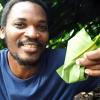









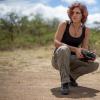







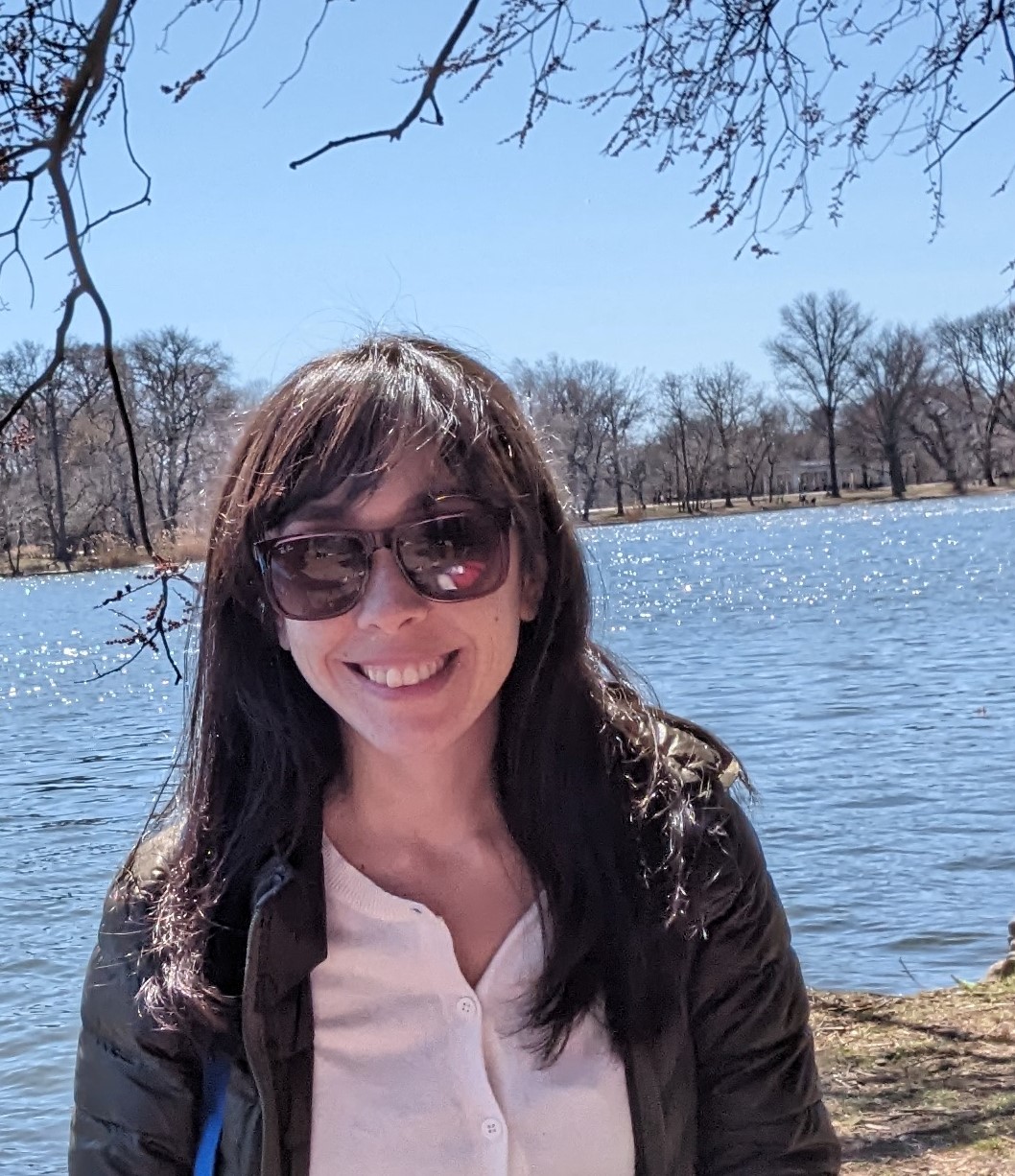
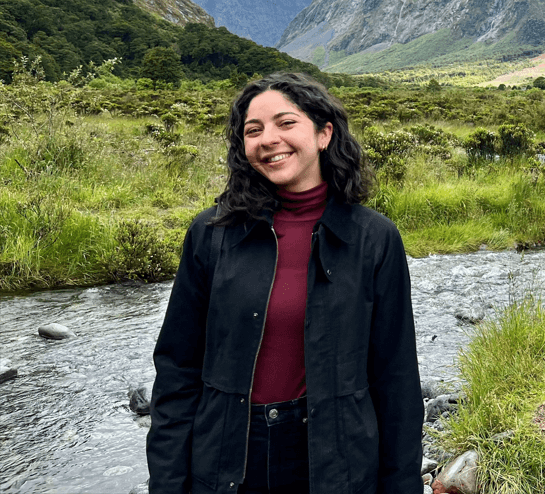


























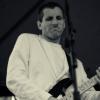









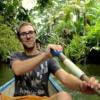
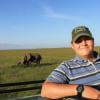

19 September 2017 2:37pm
If you're interested, you can check out the live recordings from past events (links below take you to the videos):
August: The Blockchain
The Blockchain's potential ability to help leapfrog or change corrupt and inefficient power structures can revolutionize the way we approach issues ranging from the supply chain, financial inclusion, human rights abuses, and modern slavery to environmental, energy, and workforce problems.
One source of shared truth and trusted infrastructure can help NGOs, charities, social entrepreneurs, civil societies and companies achieve their mission.
Come and discover the innovators, leaders, and philosophers in the space showcasing their solutions and meet the technologists who can support your needs.
So what is Blockchain, and is it just hype or is it really a Planet Saving Technology?
Speakers and Panellists
• Dr Jane Thomason - CEO Abt Australia, Social Policy Adviser, Devex Impact Strategic Advisory Council, Commentator Blockchain
• Arthur Falls - Director of Media at Consensys / Podcaster, State Change & The Ether Review Podcasts
• Bubba Cook - Pacific Tuna Programme Manager, WWF NZ / Pacific
• Leah Callon-Butler - Member, Advisory Board, RedGrid
• Bridie Ohlsson - External Relations, AgriDigital
July: Virtual Reality and Augmented Reality
With it's origins in science fiction, the idea of Virtual Reality has been around since the 1950's, but in the last few years, with the promise of mobile computing, it's suddenly the talk of the town.
Many are excited by the deep immersive nature and empathetic story telling potential of VR/AR and see huge opportunity in awareness raising and shifting public opinion around important issues.
So what is VR, and it's related technology cousin Augmented Reality, an is it a potential Planet Saving Technology?
Speakers and Panellists
We have a bumper, star-studded panel to unpack, explain and explore this promising technology..
• Kim McKay - CEO, Australian Museum
• Brennan Hatton - Founder, Equal Reality (Augmented Reality Development)
• Parrys Raines - FBGen / Future Business Council / Climate Girl
• Jennifer Wilson - Creative/Digital Strategist, Founder, Lean Forward
• Mikaela Jade - CEO, Indigital (Indigenous storytelling with AR)
• Scott O'Brien - CEO, Humense (Volumetric Video + Virtual Reality) (Panel Moderator)
June: Smart Cities and the Internet of Things
What is a Smart City? How will Smart Cities change the way we organise our lives? Will they bring about the so-called ‘fourth industrial revolution’?
What is the Internet of Things, and does it have the potential to be a Positive Impact Techonology? What are the opportunities and what are the risks?
We explore all this and more in the first of our deep dives into Planet Saving Technology: Smart Cities and the Internet of Things.
Speakers and Panellists
• Frank Zeichner - CEO, IoT Alliance Australia
• Angela Bee Chan - Schneider Electric / Hackathons Australia
• Ben Moir - Snepo Fablab / WearableX
• Monica Richter - Low Carbon Futures, WWF Australia.
• Andrew Tovey - Total Environment Centre, TULIP/Smart Locale (Panel Host)